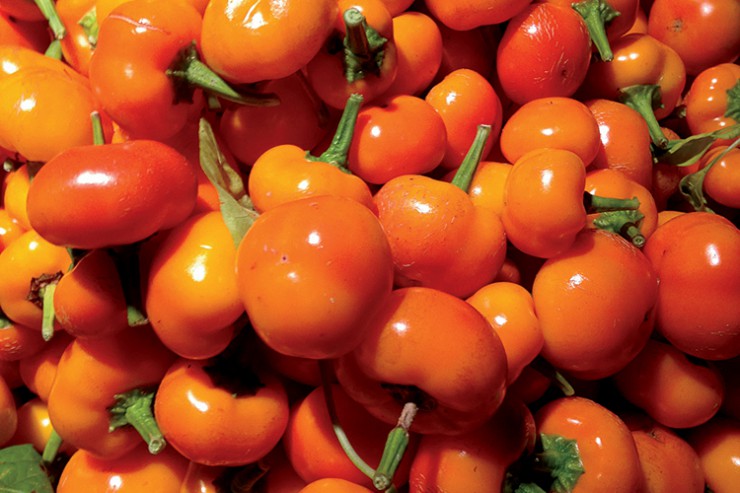Home > New Jersey > New Jersey Farm to Table > Passion for Peppadew
Passion for Peppadew

Welcome to Peppadew Fresh Vineyards and Winery, the pride of Pierre Crawley, where the Peppadew Goldew pepper and wine collaborate to provide consumers with a memorable, if not new, culinary experience.
Crawley’s story begins in 2001, when he heard about a small red pepper called Peppadew, discovered in South Africa in 1996, and often sold in brine.
A longtime food importer, Crawley introduced the Pepppadew product at the 2001 Summer Fancy Food Show. Boasting a sweet-tangy flavor with a touch of heat, the Peppadew was an immediate hit with several U.S. grocery and specialty food stores.
Inspired by this success, in 2005, Crawley established Peppadew Fresh Farms on 15 acres in Morganville. Seven acres are devoted to cultivation of Peppadew Goldew, a gold variety of the original version, without the heat.
“Goldew features a slightly tropical flavor,” Crawley says. “In brine, it’s sweet and tangy, with almost an apricot/mango finish.”
In April 2012, Peppadew Fresh USA, the farm’s marketing arm, won a three-year $259,625 Value Added Working Capital Grant from the U.S. Department of Agriculture, designated to expand production and distribute the Peppadew Goldew to national markets.
Peppadew Goldew is considered an ethnic food, part of a burgeoning industry estimated to reach $2.7 billion in 2015. The Mentel Group, a market research firm, estimates that between 2012 and 2017, sales of ethnic foods in U.S. grocery stores will grow more than 20 percent.
A recent study at Rutgers University demonstrates that the explosion of immigrant populations on the East Coast, especially Chinese, Asian Indian, Puerto Rican and Mexican, is fueling the demand for ethnic vegetables, however widely unfamiliar, valued at $1 billion annually.
“Many Garden State growers are responding by producing a myriad of potentially profitable niche crops to meet this demand,” says Rick Van Vranken, Rutgers Cooperative Extension agent for Atlantic County and co-founder of the Ethnic Produce Production and Marketing Working Group, which conducted the research.
These crops include cilantro, kohlrabi, bok choy, rappini, Asian pears, kiwi berries, diakon and more.
Propelling Peppadew Goldew into the general consumer market, Crawley is now producing wine using four acres of grapes he planted in 2013.
“We joined the Garden State Wine Growers Association and have access to their audience of 17,000 consumers,” he says. “Along with the winery, our farm, which is located in the heart of the 16-million-consumer metro New York market, has become a venue for weddings and other events. We require that any party meal catered here must include Peppadew Goldew, which we provide at no charge.”



